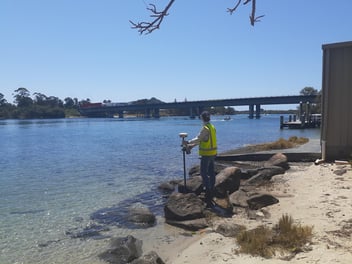Speed, not perfection, key to utilities' COVID-19 response and recovery
As water utilities across the country begin recovery planning following interruptions caused by the COVID-19 pandemic, experts agree on one key ingredient to a successful emergency response: speed.
In a webinar hosted by the Australian Water Association’s Victorian branch recently on preparing for emergency events and maintaining essential services, many guest speakers drew on their recent, if not ongoing, experiences with responding to the pandemic.
Speed was mentioned by all as one of the most important elements of emergency response, with Coliban Water Managing Director Damian Wells saying his experience with emergency teams showed the importance of fast action.
“One thing I have certainly learned over the years is the importance of moving quickly; you need to follow your gut, make a judgement and allocate the team, and you need to do it straight away,” he said.
Interested in the impact of COVID-19 on the water sector? Don’t miss the COVID-19 stream on Day 3 of Ozwater’20 Online.
Wells said the speed at which a utility is able to respond depends on how prepared it is, and stressed the importance of forethought and planning.
“[It’s important to] develop a culture where you are ready. You’ve got your ear to the ground, you’ve got a business that has hardwired emergency processes across the board. You also want to create situational awareness in all of your team,” he said.
“What is the context in which we are operating? And what are the things that make an impact on our ability to achieve our objectives? You have to take a broad view. You could be interrupted by things you may not alway expect.
“Embrace the nature of emergency incidents; they’re dynamic, they change – get comfortable with being uncomfortable.”
Speed not perfection
Western Water Manager of Water Systems and Solutions Rod Curtis agreed, saying it is okay not to get everything right the first time around, especially in response to unprecedented events.
“Speed trumps perfection in an emergency situation,” he said.
“The speed and pace didn’t allow us to get everything perfect the first time, but the acceptance from our staff was amazing.
“We had a clear objective in our pandemic plan: undertake preparedness activities, contain the virus and continue to deliver our services to the community. We acted as soon as possible.”
Curtis said one of the utility’s biggest threats was in ensuring there were enough staff to maintain manual operations, given that a large percentage of the population was expected to become ill.
“We set up a system where all the operators were running in isolation,” he said.
“We were updating our business continuity plans and one of the biggest threats was a potential reduction in staff. We can’t run our wastewater treatment plant virtually.”
Melbourne Water Security and Emergency Management Specialist Wayne Charlton said that while the business has experienced interruptions to some of its arrangements, there have been some positive learnings from the crisis.
“[It’s] had some minor impact on stakeholders. We’ve had to close our reception areas; we’ve had to cancel school tours. Closing of schools had a significant impact on some of our staff, more so than the virus itself,” he said.
“We are now transitioning from an incident management team to a business as usual recovery model. This will identify opportunities that we might choose to take moving forward, for instance, working from home.
“It’s not always bad news in an emergency response, there can sometimes be positive outcomes, too.”
To learn more about COVID-19 and its impact on Australia’s water sector, don’t miss Day 3 of Ozwater’20 Online. To learn more and to register, click here.

